Visitors of South Korea will find that it is a beautiful, bustling country still very steeped into its ancient traditions mixed with much modernization.
Visitors and locals will find that there are many fun things to do in Seoul as well as the other major cities such as Pusan and Taegu.
When planning your South Korea vacation, it is probably a good idea to speak with a Korea travel agency so that they may help to plan your once in a life time vacation.
There are many interesting South Korea facts that one may want to be aware of when planning to visit this magnificent country.
Here we have compiled a list of the top 10 interesting South Korea facts.
Let’s Begin
Religious Diversity

South Korea is a country with a rich cultural heritage and a history of diverse religious beliefs.
The traditional religions of Korea include Shamanism, Buddhism, and Confucianism. However, in recent years, Christianity has become a dominant religion in South Korea, with over 30% of the population identifying as Christians.
Despite the growing Christian population, South Korea remains a country with a diverse religious landscape. Buddhism, which has a long history in Korea, still has a significant following, with around 20% of the population identifying as Buddhists.
Other religions in South Korea include Islam, which has a small but growing community, and various new religious movements that have gained popularity in recent years.
These new religious movements include groups like Won Buddhism, which emphasizes the interdependence of all things, and Daesun Jinrihoe, which combines elements of Christianity, Buddhism, and traditional Korean beliefs.
The Literacy Rate Is Extremely High

Did you know that South Korea has one of the highest literacy rates in the world? That’s right, an astonishing 98% of the population is literate!
This is thanks to the country’s strong emphasis on education, which begins at a very young age.
In South Korea, children spend their primary, middle, and high school years preparing for college.
As a result, the competition to get into one of the country’s top universities is incredibly fierce.
This is because there are not a lot of colleges in South Korea, so admission into one is extremely difficult.
South Korea’s education system is structured in a way that promotes hard work and academic excellence. Students attend school for long hours, often staying after classes to participate in extracurricular activities and study groups.
They also spend many hours studying at home, with the support of their families who place a high value on education.
While this education system has produced impressive academic achievements, it has also been criticized for its intensity and pressure on students. In recent years, there have been efforts to reform the education system to prioritize a more well-rounded approach to learning and to reduce the stress placed on students.
12th Largest Trading Nation
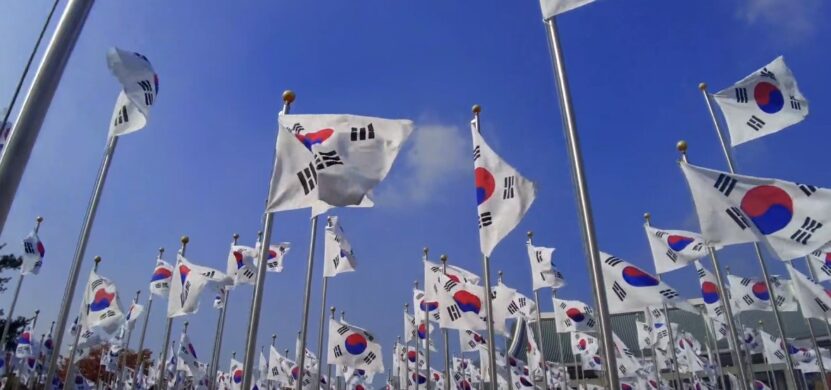
It’s true! Despite being a relatively small country in terms of land area and population, South Korea has emerged as a major player in the global economy.
One of the key drivers of South Korea’s economic success is its impressive export industry.
The country is known for producing high-quality products, particularly in the areas of automobiles, electronics, machinery, steel, and textiles.
These exports have helped to establish South Korea as a major trading partner with countries around the world.
South Korea’s economic success can also be attributed to its innovative and forward-thinking approach to technology.
Companies like Samsung, LG, and Hyundai have become household names around the world, thanks to their cutting-edge products and services.
While South Korea’s economic growth has brought many benefits to the country, there have also been some challenges.
For example, some critics have raised concerns about the impact of rapid industrialization on the environment and on worker safety.
Despite these challenges, South Korea’s impressive economic growth and status as a major trading nation are a testament to the hard work and ingenuity of its people.
It’s no wonder that South Korea is considered one of the most dynamic and exciting countries in the world!
Modernization After War
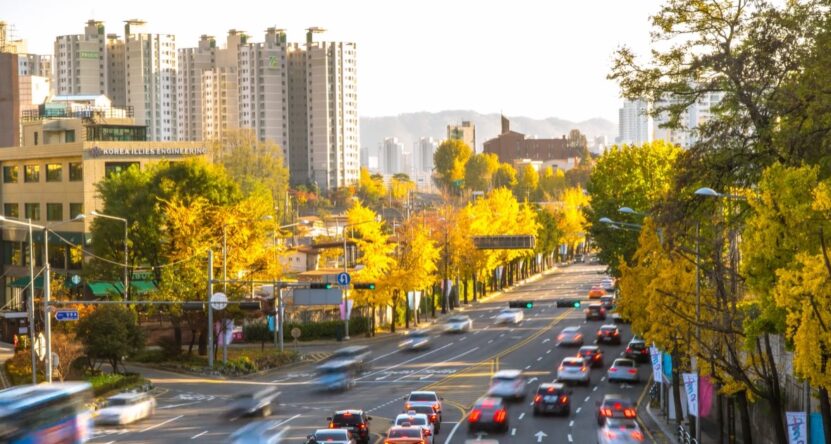
After the devastation of the Korean War, South Korea faced many challenges in rebuilding its economy and society.
However, with hard work and determination, the country embarked on a path of modernization that would transform it into the dynamic and modern society it is today.
One of the most striking aspects of this transformation is the shift from a predominantly rural society to an urban one.
Prior to the Korean War, South Korea was a nation where 75% of the population lived in rural areas.
However, in the decades since, the country has experienced a dramatic shift towards urbanization. Today, over 82% of the population lives in urban areas.
This transformation has brought about many changes in South Korean society.
Urbanization has led to the development of modern infrastructure, such as highways, airports, and public transportation systems.
It has also enabled the growth of industries like technology, finance, and entertainment, which have helped to drive the country’s economic success.
However, urbanization has also brought about some challenges.
As cities have grown, so too have issues like pollution, traffic congestion, and overcrowding.
These challenges have prompted South Korean leaders to explore new solutions to ensure that the country’s urban areas remain livable and sustainable for future generations.
Separation
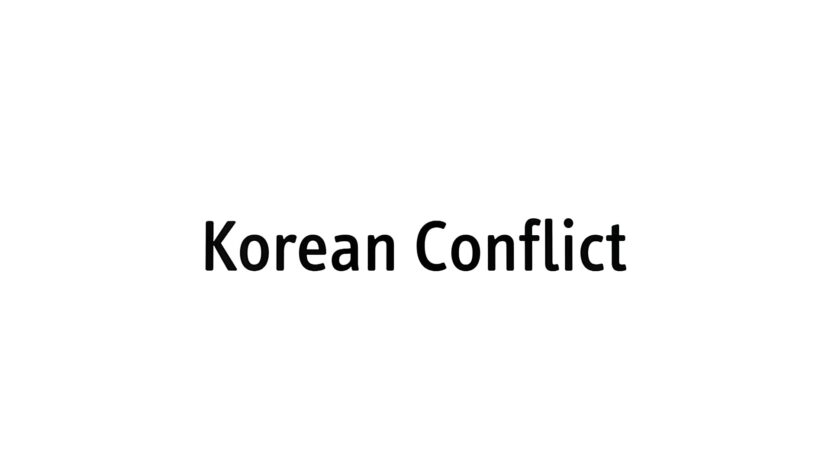
After the end of World War II, Korea was divided into two separate nations: North Korea and South Korea. This division was the result of a complex political situation that involved the interests of many different countries.
North Korea became a communist nation, while South Korea did not. This ideological divide has had a profound impact on the two countries, shaping their political systems, economies, and relationships with the rest of the world.
North Korea has been ruled by the Kim family since its inception, with a government that emphasizes a strict adherence to communist ideology.
The country has been isolated from much of the world, with limited access to international trade and communication.
As a result, North Korea has faced many economic and political challenges over the years.
South Korea, on the other hand, has developed into a thriving democracy with a strong economy and close ties to the global community.
The country has embraced capitalism and free market principles, and has become a major player in industries like technology and manufacturing.
Despite their differences, the two Koreas share a complex and often fraught relationship.
The Korean War, which began in 1950, resulted in the loss of many lives and the division of families.
The two countries remain technically at war, with tensions often running high between them.
Best-Planned Languages in History
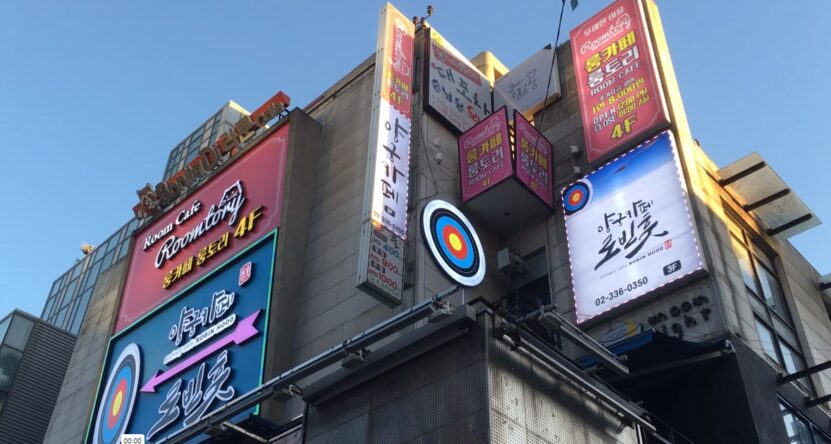
Did you know that Korean is considered one of the best-planned languages in history? It’s true! Korean was developed with a highly systematic structure and grammar, making it an easy language to learn and understand.
This well-planned structure has helped to make Korean a unifying force in South Korean society. Despite regional dialects and accents, the language is a common thread that connects people from all walks of life.
In addition to their native language, most Koreans also study English. English has become a global language, and proficiency in it is seen as a valuable skill for education, business, and travel.
In fact, South Korea has become known for its emphasis on English language education. Students often begin learning English at a very young age, and many schools offer specialized English language programs to help students improve their proficiency.
While the emphasis on English language education has been criticized by some as overly focused on rote memorization and test scores, it has also helped to make South Korea a highly connected and globalized society. Koreans are able to engage with people from all over the world, breaking down barriers and promoting cultural exchange.
The Fascinating Contradiction
Despite being one of the most modern and technologically advanced societies in the world, South Korea is a country that is steeped in tradition and ancient ways of life. This contradiction is one of the most intriguing aspects of South Korean society.
On the one hand, South Korea is known for its cutting-edge technology, modern architecture, and thriving business culture. The country has become a leader in industries like electronics, automotive manufacturing, and entertainment, and is home to some of the world’s most innovative companies.
On the other hand, South Korea is a nation with a deep respect for its cultural heritage. Traditional customs and rituals, such as the Korean tea ceremony, have been passed down through generations and continue to be practiced today. Korean traditional clothing, such as the hanbok, is still worn on special occasions, and traditional Korean music and dance continue to be performed.
This reverence for tradition can also be seen in the country’s approach to family and social relationships. Respect for elders and a strong emphasis on family values are deeply ingrained in South Korean culture, and these values continue to shape the way people live and interact with each other.
Double the Celebration

Country celebrates both the western New Year, which falls on January 1st, and the lunar New Year, which typically falls in late January or early February.
The lunar New Year, also known as Seollal, is an important holiday in South Korea. It is a time when families come together to honor their ancestors and to celebrate the start of a new lunar cycle. Traditional foods, such as rice cakes and dumplings, are prepared, and families often wear traditional clothing and participate in traditional games and activities.
In contrast, the western New Year is often celebrated as a more secular holiday, with parties, fireworks, and other festivities.
The celebration of both New Years in South Korea is a reflection of the country’s unique blend of traditional and modern culture. It is a reminder that while South Korea is a rapidly modernizing society, it remains deeply connected to its cultural heritage and traditions.
Unique Holidays and Traditions
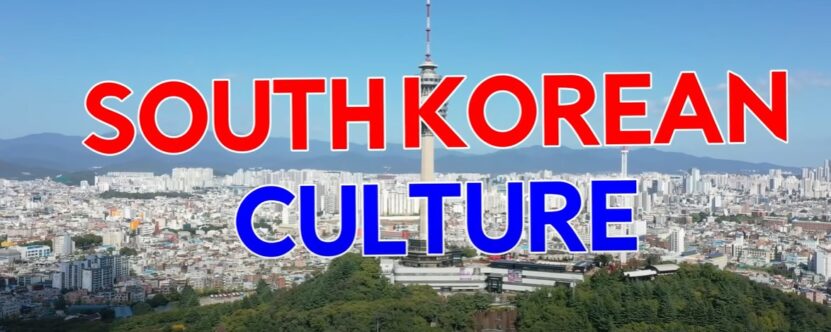
In addition to the two New Year’s celebrations, South Korea has several other holidays that are worth knowing about.
One of these is Korean Alphabet Day, which falls on October 9th.
This holiday is celebrated to mark the creation of the Korean language, and it is a time when Koreans come together to celebrate their unique and beautiful language.
Another interesting holiday in South Korea is Valentine’s Day. By Korean tradition, girls give guys chocolate and gifts on Valentine’s Day.
But this is not the end of the story! A month later, on March 14th, there is a holiday called White Day, where guys give girls more elaborate chocolate and gifts in return.
For those who are single, there is a holiday called Black Day on April 14th. On this day, those who are not in a relationship come together to eat JaJang noodles, which are black in color.
This holiday is a way for singles to celebrate their independence and to show solidarity with others who are not in a relationship.
Traditions of Kindness in Society
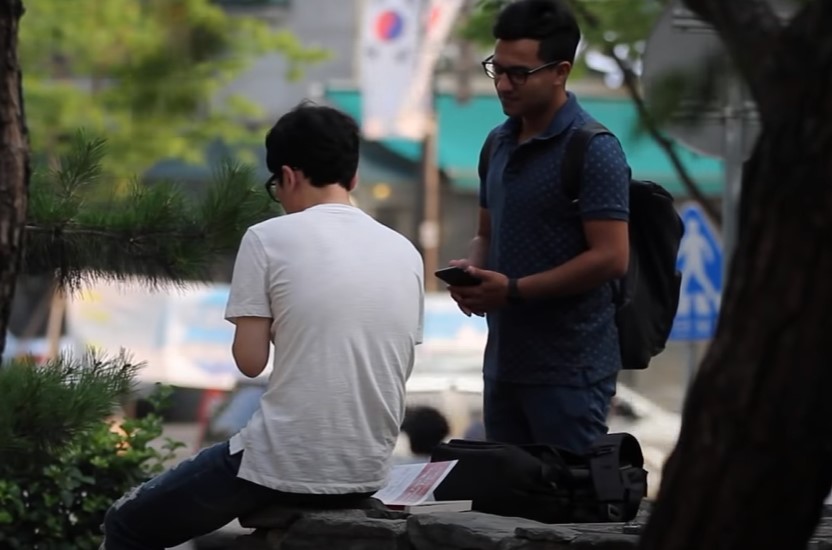
South Koreans are known for being some of the nicest and most respectful people in the world.
They place a great deal of importance on showing respect to their elders and to others around them.
This is a tradition that dates back thousands of years and is deeply ingrained in South Korean culture.
At times, South Koreans may appear rude or dismissive, but this is often not personal. Instead, it is a reflection of the cultural norms of the society.
For example, direct eye contact and overt displays of emotion may be seen as disrespectful or even confrontational in South Korean culture.
However, despite these differences, South Koreans are generally very happy to help others and to share their culture with those who are interested.
In fact, they are often delighted when others express a desire to learn their language or to explore their traditions.
Whether you are traveling to South Korea or simply interacting with someone from the country, it is important to approach the culture with an open mind and a willingness to learn.
By doing so, you will be sure to discover the warmth, kindness, and unique beauty of South Korean culture.
FAQs
Q: What is the traditional clothing of South Korea?
The traditional clothing of South Korea is called the hanbok. It consists of a blouse and skirt for women, and a shirt and pants for men. The hanbok is often brightly colored and decorated with intricate designs.
Q: What are some popular Korean dishes?
South Korea is known for its delicious and unique cuisine. Some popular Korean dishes include kimchi (fermented vegetables), bulgogi (marinated beef), bibimbap (a rice bowl with vegetables and meat), and kimbap (similar to sushi rolls).
Q: What is the significance of the Korean alphabet?
The Korean alphabet, known as Hangul, was created in the 15th century. It is considered one of the best-planned writing systems in the world, and its creation played an important role in promoting literacy and education in Korea.
Q: What are some major festivals and holidays ?
Country has a rich and diverse calendar of festivals and holidays. Some of the major events include Lunar New Year (Seollal), Chuseok (a harvest festival), and the Boryeong Mud Festival (a celebration of mud and skincare).
Q: How has South Korea’s economy grown so rapidly in recent decades?
South Korea’s economic success can be attributed to a number of factors, including government investment in education and infrastructure, the growth of industries like technology and manufacturing, and a highly skilled and educated workforce.
Q: What are some traditional customs and values their society?
Their culture places a great deal of emphasis on respect for elders, family values, and the importance of community. Traditional customs include the Korean tea ceremony, traditional music and dance, and the wearing of the hanbok.
Q: What is the relationship between North Korea and South Korea like?
The relationship between them is complex and often tense. The two countries technically remain at war, and there are frequent diplomatic and military conflicts between them. However, there are also efforts to promote reconciliation and cooperation between the two nations.
Q: What is the role of technology in South Korean society?
South Korea is known for its cutting-edge technology, particularly in industries like electronics and telecommunications. Technology has played a key role in the country’s economic growth and has helped to establish South Korea as a major player in the global market.
Q: What are some popular leisure activities?
They enjoy a variety of leisure activities, including hiking in the country’s many beautiful national parks, playing traditional games like baduk (similar to chess), and exploring the country’s vibrant nightlife scene.
Q: What is the education system like ?
South Korea has a highly competitive and rigorous education system. Students typically spend long hours studying and preparing for exams in order to gain admission to top universities. However, there has also been criticism of the system for being overly focused on test scores and rote memorization.
If you find this article useful, and you are interested in discovering more about different travel destinations, check out our other posts for more information and inspiration:

